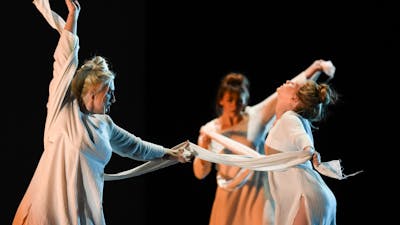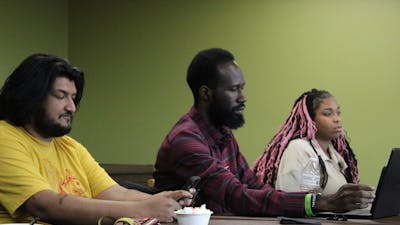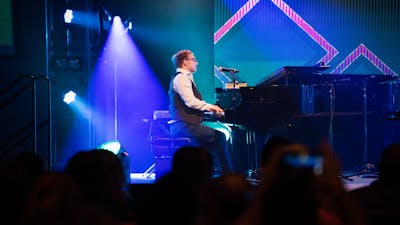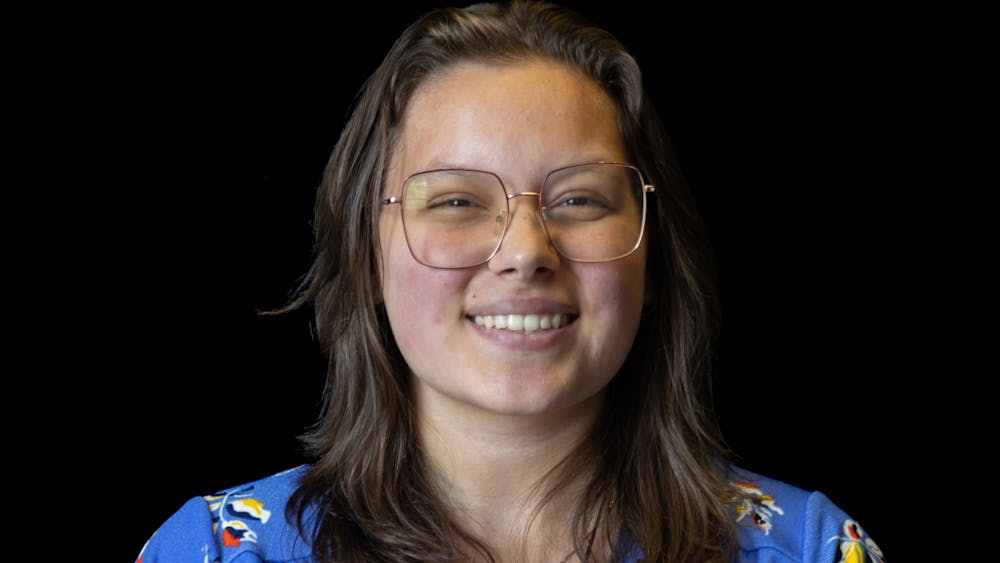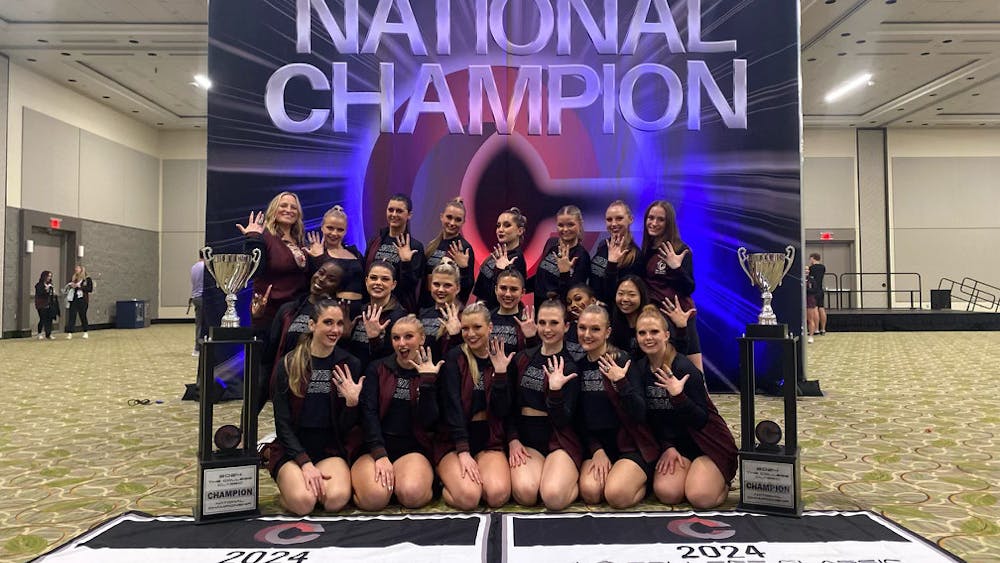Student hypnotist plans to open clinic after graduation
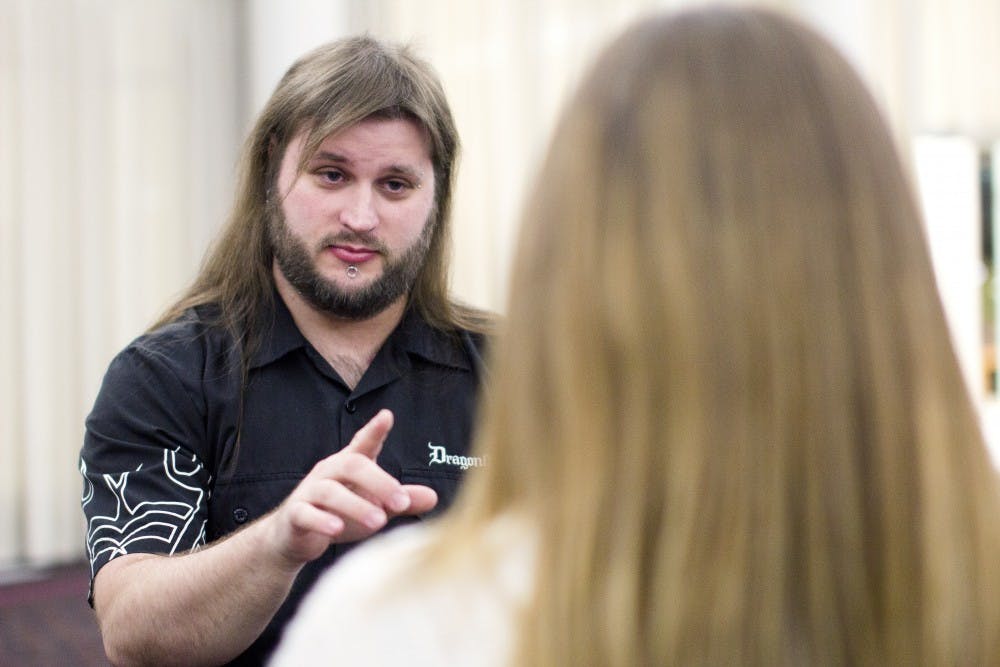
In a shady, empty living room apartment, a man with a thick goatee and long disheveled hair asked his patient to descend the imaginary stairs of their mind.
He stood in front of the hypnotized patient wearing a black kilt, a dark shirt and a calm, reassuring look on his face.
The hypnotherapist, 29-year-old Joshua Dixon, has a double major in psychology and premedicine at Central Michigan University. He said he aspires to open his own hypnotherapy clinic after he graduates.
Dixon described hypnosis as a “window to the soul and to the subconscious mind.”
"I realized (hypnosis) was just as much of an art as playing an instrument or painting a canvas."
-psychology and premedicine major Joshua Dixon
Freshman Anna Krinke said she was skeptical, but wanted to try to try being hypnotized.
At first, Krinke said she felt relaxed and tried to focus on Dixon’s voice, but then she fell into a trance. She woke up after half an hour without remembering anything.
“I thought I was asleep for 10 minutes," Krinke said. "Needless to say, I was amazed when they told me I was in trance for more than one hour."
Krinke said her wonder grew more and more when she was told Dixon made her believe he was invisible and made her forget how to count to 10.
“I was relaxed and I didn’t feel any stress at all," she said. "I would like to do it another time."
Dixon’s interest for hypnosis arose several years ago when he concluded his service for the United States Navy. After traveling around the world in a submarine for four years, he enrolled in a hypnosis course with the intention to prove it as a false practice.
“I hoped it was real, but I really felt it was fake,” he said.
After paying $3,000 to take classes at the Hypnosis Maryland Institute, he became passionate about the practice and got certified in hypnotherapy.
By going into a deeper level of a patient’s mind, the hypnotherapist can talk to them without barriers and explore their unconscious, he said. The aim of hypnosis is to find what really distresses the patient, which is usually a particular trauma, and produce positive changes in their personalities and behaviors.
“(Hypnosis) is used in almost every medical area,” Dixon said.
Dixon gave examples of how hypnosis has been used to change behaviors to help someone quit smoking or to replace anesthesia during surgeries for people with allergies. There’s also a specific technique called “hypnobirthing” used to give birth without pain, he said.
However, the greatest benefit is given to soldiers with post-traumatic stress disorder, the first effective cure used to fix their anguish, Dixon said.
“And of course, it’s fun to show it during the parties,” Dixon exclaimed with a broad smile.
Whoever wants to study this field has to be respectful, a good listener and show good empathy, adding that the most beautiful part of this work is helping people.
Dixon said many people use hypnotic language patterns daily without realizing it; that’s the case of car salesman. Even people working in the media use it as a strategy, for example in advertisement. However, the most interesting practice is the one made by politicians, who are usually trained in it. Donald Trump, Dixon said, is one of them.
“Just try to observe his movements, his speech, his voice and you’ll know what I’m talking about,” he said.
The hypnotherapist said many only use it as a tool for lower objectives, but the true essence of hypnosis can be found in a mixture between magic and science which is devoted to help people.
According to the American Society of Clinical Hypnosis, people willing to own a clinic and practice hypnosis in their profession have to get a specific license as a healthcare worker released by different schools and obtain a master’s degree. Fields of study that include this practice are psychology, psychiatry, clinical social work, medicine, master-level nursing, dentistry and chiropractic.
For now, he offers private sessions with a $200 charge for the first time and a $100 per hour charge for follow up sessions.
“That’s what I want to be. I found in hypnosis everything that I need — art, science, realization, empathy and beauty," he said. "This is real magic.”
